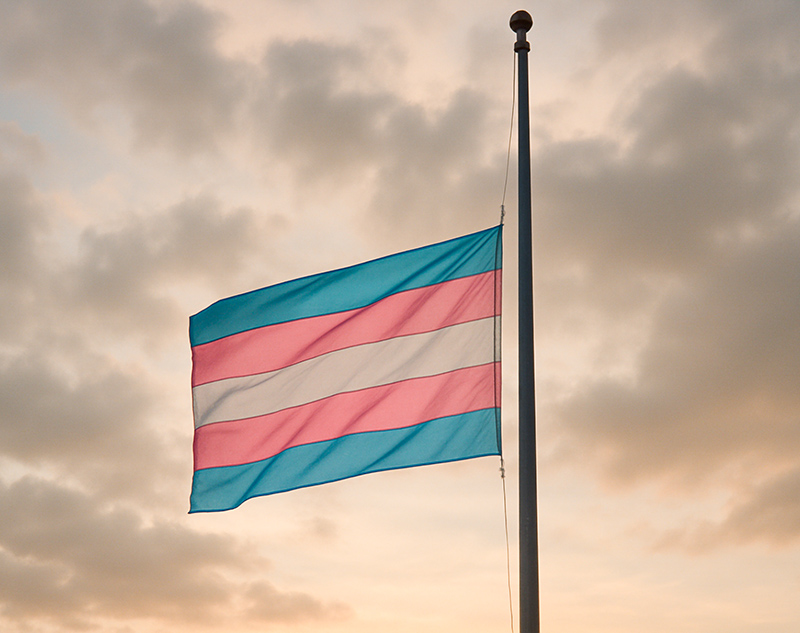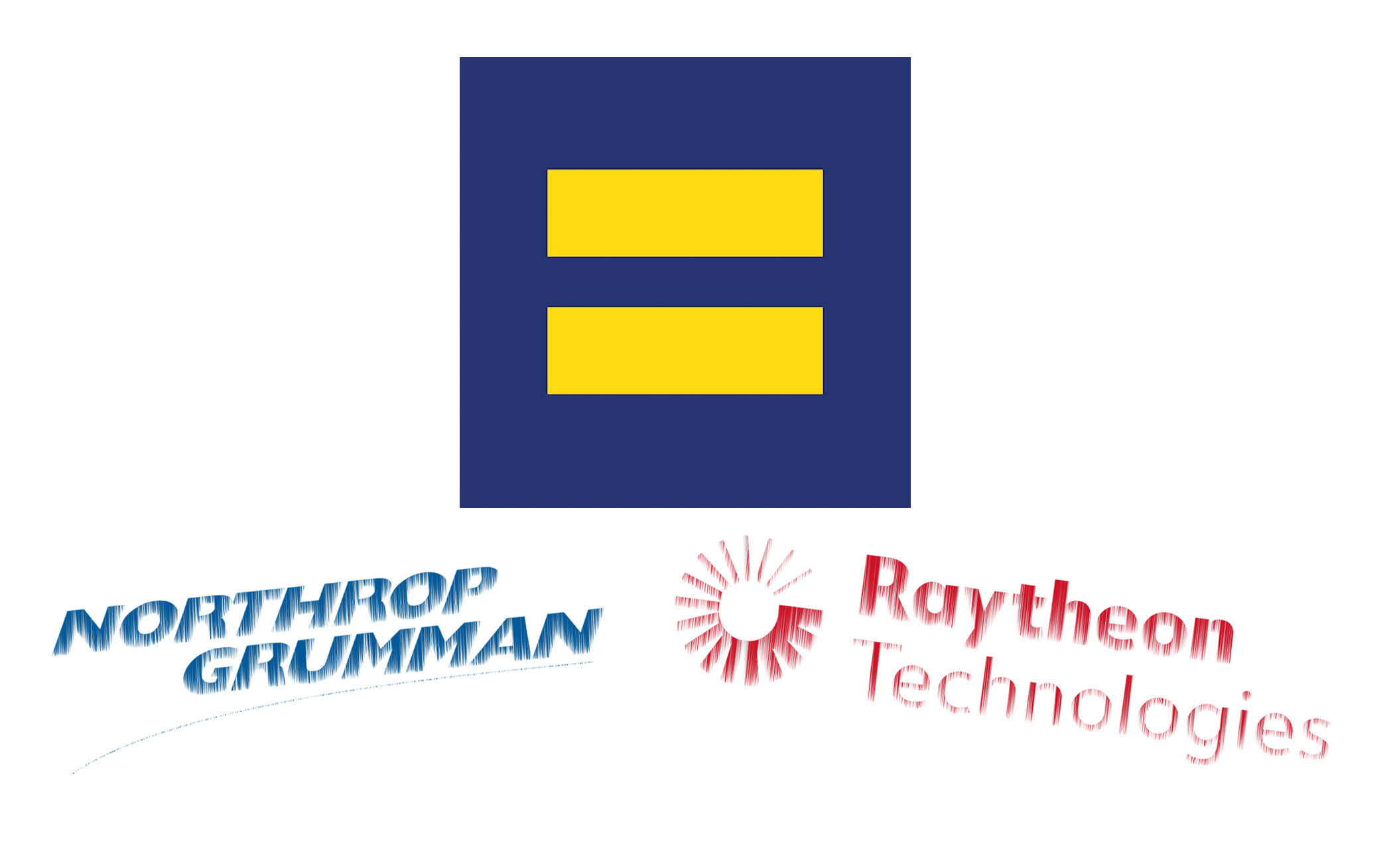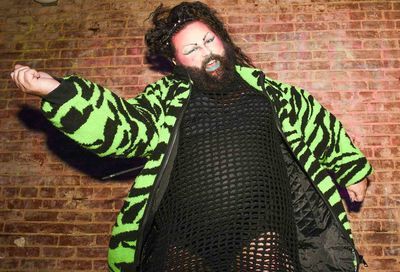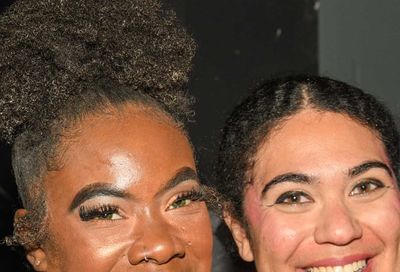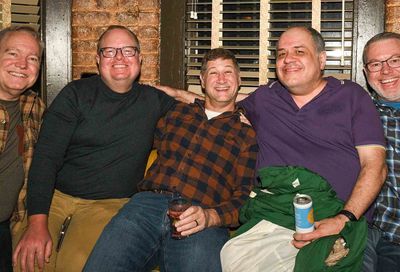Activist: Ferguson’s Sketch Only Funny If “Transgender People [Are] a Human Punchline”
Following up on the Metro Weekly post about Craig Ferguson’s Feb. 4 sketch featuring his “half-sister” — played by a man and named “Peg” — Metro Weekly received a significant number of comments defending Ferguson and stating that those having a problem with the sketch were “oversensitive” or in need of “a sense of humor.”
Metro Weekly asked Meghan Stabler, a member of the board of directors of the Human Rights Campaign, for her thoughts. Stabler is a business executive, national LGBT activist, transsexual woman, and transgender advocate.
 Of the sketch, she wrote of its punchline, “Unfortunately for this [sketch], and for us, there was no punchline, unless you regard transition as a joke and therefore transgender people as a human punchline.”
Of the sketch, she wrote of its punchline, “Unfortunately for this [sketch], and for us, there was no punchline, unless you regard transition as a joke and therefore transgender people as a human punchline.”
In her conclusion, Stabler calls for action, writing, “This is the time for the media to sit down with us face to face and explain — eye-to-eye — why they believe their jokes about us are funny and to hear from us why we are not laughing.”
Below, please find Stabler’s complete response provided to Metro Weekly:
When the foundation of the comedic stage is utter mockery and dehumanization of a minority is it truly comedy?
In the last several days transsexual, transgender and gender non-conforming people have become the visible brunt of comedy, with Lorne Michael’s irresponsible Saturday Night Live parody of “men in dresses” taking once a day “Estro-Maxx” estrogen on NBC, to last night’s The Late Late Show with Craig Ferguson on CBS in which his “half-sister” Peg, another bearded, “hairy man in a skirt,” to whom at one point Craig referred to as a “he-she.”
American society is now geared toward everything being “extreme and accessible.” Yet, in doing so, where is the boundary of responsibility before it becomes meanness, and before it becomes recklessness? One would think comedy could safely push the boundaries without being offensive. Obviously not.
We should all be shocked and appalled with what was coming out in the current narrative of comedy. The lives of gay and lesbian people are being woven into the fabric of TV shows such as GLEE and Modern Family. Even though we have a long way to go before full rights are afforded to us, we can still be shown as equals to our peers. Comedy’s ability to mock that part of our community has significantly lessened, but has it done so at the risk of emphasizing the focus on the transgender community?
I think it has, and it needs to stop.
To many of us who have journeyed along the deeply emotional and stressful path to transition our gender, the parody and acting portraits were utterly offensive. Hidden behind and along that journey is significant stress, deep emotion, extreme risk and even worse — suicide or homicide.
To live our lives authentically takes deep courage mirrored with the real fears and deep-rooted societal prejudices that all too often manifest themselves as workplace bigotry, un- and under-employment, loss of family and friends, and most unfortunately, harassment and homicides.
Some will likely argue that the portrayal was humorous, a joke, but in true comedy there is always a punchline. Unfortunately for this one, and for us, there was no punchline, unless you regard transition as a joke and therefore transgender people as a human punchline. In doing so, the comic must also understand that in conveying it as humorous comes the risk that sometimes transgender people will be the punching bag.
The meme conveyed to the public is that transsexual women are only “men in skirts” and should not be taken seriously, a problem that could cause actual physical and mental harm to transsexuals, transgender and gender-nonconforming people, whose sole desire is just to fit in to society.
I am no longer asking the show hosts, NBC, CBS, production companies and programming staff for an apology, I am asking them for a serious and honest sit down with us. I’d like them to understand our stories and where our pain with their ridicule comes from. This is the time for the media to sit down with us face to face and explain — eye-to-eye — why they believe their jokes about us are funny and to hear from us why we are not laughing. Until there is understanding and open, honest dialogue, the comedy will still hurt, and members of the transgender community and allies will not be laughing.
Sadly, society has a long way to go before transsexual, transgender and gender-nonconforming people receive equality. Media can help — rather than hurt.
Support Metro Weekly’s Journalism
These are challenging times for news organizations. And yet it’s crucial we stay active and provide vital resources and information to both our local readers and the world. So won’t you please take a moment and consider supporting Metro Weekly with a membership? For as little as $5 a month, you can help ensure Metro Weekly magazine and MetroWeekly.com remain free, viable resources as we provide the best, most diverse, culturally-resonant LGBTQ coverage in both the D.C. region and around the world. Memberships come with exclusive perks and discounts, your own personal digital delivery of each week’s magazine (and an archive), access to our Member's Lounge when it launches this fall, and exclusive members-only items like Metro Weekly Membership Mugs and Tote Bags! Check out all our membership levels here and please join us today!








